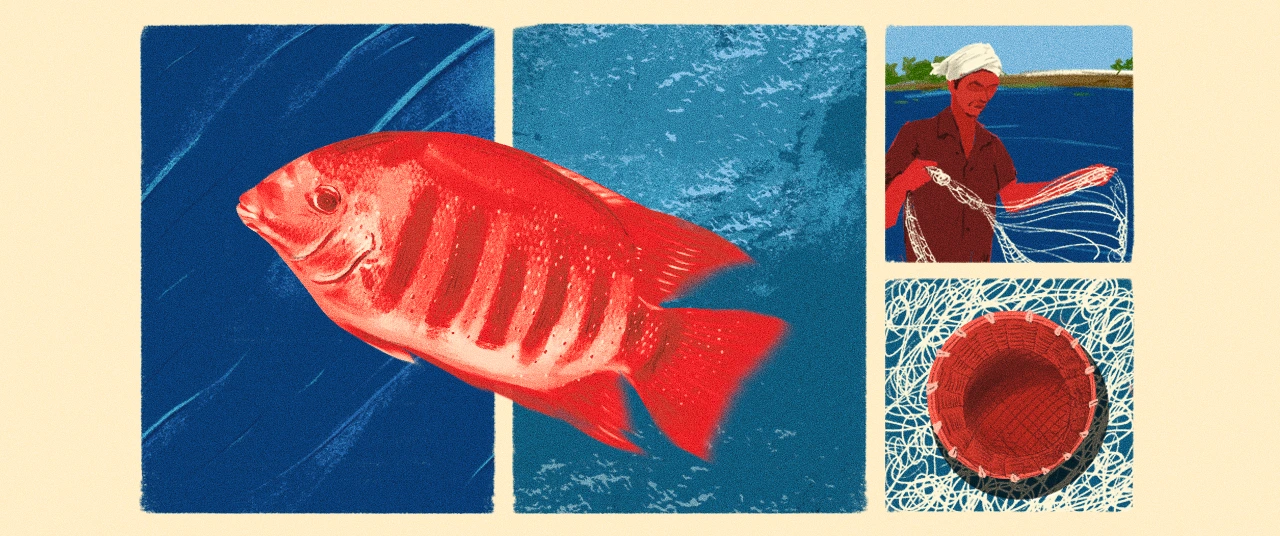The state offers a blueprint for fighting antibiotic resistance in India






Last January, Kerala launched AMRITH (Antimicrobial Resistance Intervention for Total Health), an initiative to curb the rampant use of antibiotics. The initiative builds on Kerala’s longstanding commitment to AMR prevention. Back in October 2018, the state collaborated with the Ministry of Health and Family Welfare and the WHO to launch the Kerala Antimicrobial Resistance Strategic Action Plan (KARSAP). A year later, Kerala Antimicrobial Resistance Surveillance Network (KARS-NET) came about. The network aimed to standardise AMR surveillance, track emerging resistance patterns, and provide critical data to the state government and the National Centre for Disease Control (NCDC). By restricting antibiotic sales without a doctor's prescription, such programs have led to a remarkable Rs 1,400 crore reduction in antibiotic sales, according to state health minister Veena George.
"We have adopted a scientific, strategic approach to fight AMR," George said in a statement, highlighting the state's all-round efforts, including public awareness campaigns at educational institutions and public spaces.
The All Kerala Chemist and Druggist Association reported a sharp decline in antibiotic sales as early as August 2023. "As per our assessment, there is an annual drugs turnover of Rs 15,000 crore, of which antibiotics account for around 25 to 30%. After the government increased awareness, there was a 30% reduction in the 2023-24 fiscal year from the previous year, including sales from private hospital pharmacies," said association state president and national vice-president AN Mohanan.
State action plans
In November 2023, the Family Health Centre (FHC) at Kakkodi in Kozhikode district became the country's first antibiotic-smart hospital. Just two months later, the Ozhalapathi Family Health Care Centre in Palakkad followed suit, becoming the second such facility. Such health centres are recognised for meeting ten key criteria to monitor and control antibiotic use.
While India introduced the H1 rule in 2011 to curb over-the-counter antibiotic sales, it wasn’t until 2013 that the regulation was modified to restrict sales of more powerful antibiotics while allowing the sale of first-line options without a prescription. Kerala is the only state rigorously enforcing the original H1 rule.

Expanding community efforts
In May 2023, Kerala’s Health Department issued a directive to all District Medical Officers to implement Standard Operating Procedures (SOPs) for block-level AMR committees. The committees focus on raising awareness about infection prevention, proper antibiotic use, access to antibiotic-free food and water, and the safe disposal of expired antibiotics. "It was IEC (Information, Education, and Communication) in the first phase of the KARSPA activities. We reached as many people as possible for awareness, conducting workshops and speaking on all platforms. In the second phase, we resorted to punitive action under the Drugs and Cosmetics Act by conducting inspections and taking swift action against unchecked sales. Both measures resulted in a considerable reduction in sales and consumption,” said Shaji M Varghese, state coordinator of One Health and AMR and Assistant Drugs Controller, Kozhikode. The state has over 25,000 wholesale and retail medical shops, he added.

A model for the nation
Kerala’s AMR strategy exemplifies a comprehensive, multi-faceted approach to public health. From community-based initiatives to pioneering healthcare facilities, the state is leading the way in the fight against antimicrobial resistance. By focusing on education, regulation, and innovation, Kerala offers a clear blueprint for other states looking to safeguard the future of antibiotics and preserve their life-saving power.
In the battle against antimicrobial resistance (AMR), Kerala stands out for its innovative and thorough strategy. Dr Divya PK, an ENT specialist, played a pivotal role in transforming the Kakkodi Family Health Centre into an antibiotic-free facility. “I used every opportunity whenever I got a microphone; whether it was a festival at an Anganwadi, a Kudumbashree (State Kudumbashree Mission for Women Empowerment) gathering, or an elderly people’s meeting. Wherever I could get ten people together, I would talk about this. People initially had a reluctance to stop using antibiotics; they had an idea that only antibiotics could cure their disease. Later, people got used to the idea that doctors would prescribe them if needed."
She also reached out to resident associations, Kudumbashree units, and private medical shops, promoting the Go Blue Campaign, which raises awareness about AMR. “Most importantly, the focus was on preventing infection by promoting handwashing, stressing hand hygiene, vaccinating, etc. We distributed pamphlets to all households and informed private medical shops to raise awareness about the Go Blue Campaign (which aims to increase awareness of global AMR and encourage best practices), asking them to sell antibiotics in blue covers. Information was shared with doctors in the private sector through a WhatsApp group. I also spoke at Grama Sabha meetings and to veterinarians,” she added. Divya is now the MO of Koodaranji FHC in the district.

I used every opportunity whenever I got a microphone; whether it was a festival at an Anganwadi, a Kudumbashree (State Kudumbashree Mission for Women Empowerment) gathering, or an elderly people’s meeting. Wherever I could get ten people together, I would talk about this [AMR].
Antibiotic classification
In 2017, the WHO introduced the AWaRe classification (later revised in 2019 and 2021) to group antibiotics into three categories: Access, Watch, and Reserve. Access antibiotics have a narrow spectrum, fewer side effects, lower resistance risk, and are cost-effective. They are recommended for common infections and should be widely available. Watch antibiotics carry a higher risk of resistance and need careful monitoring to avoid overuse. Reserve antibiotics are the last resort for severe infections caused by multidrug-resistant pathogens.
“Kerala had developed resistance even to the Reserve group–for example, linezolid (used to treat bacterial infections), which resulted in deaths. Ninety-five percent of the total antibiotic usage should be from the Access group, with only 5% from the Watch group. Data from April 2022 to March 2023 showed that Kakkodi hospital used only 5% from the Watch group, despite the usage of antibiotics during the Shigella outbreak in Kozhikode,” Divya said.
Kakkodi FHC and sub-centers set up collection points for unused and expired antibiotics, as discarded medicines can contaminate plants. The PROUD program was launched for safe disposal, training hospital staff and ASHA workers. Monitoring ensured that Kakkodi remained an antibiotic-smart centre, with the entire panchayat also becoming antibiotic-literate.
“As a first step in antibiotic literacy, dairy, poultry, and honeybee farmers were identified with the help of veterinary doctors. We also collected data on the use of antibiotics in animals and found Reserve and Watch antibiotics used among them. The use of antibiotics in animals like cows and poultry transfers to human beings through milk and poultry meat. Antibiotics are even mixed into cattle feed and poultry feed,” she further said adding that veterinarians wholeheartedly supported the campaign.
One Health approach
Kerala’s approach to AMR is rooted in the One Health concept, which encourages collaboration across sectors–public health, veterinary, environmental, and agriculture. This holistic approach recognises that human, animal, and environmental health are interconnected, making it essential to address AMR on all fronts.
In 2023, Kerala made history as the first state in India to establish AMR committees at both district and block levels, covering all 191 health blocks. The committees are composed of representatives from health, animal husbandry, agriculture, and environmental departments. “AMRITH was launched after the formation of the committees, followed by ROAR (Rage on Antimicrobial Resistance by the Drugs Control Department in September 2024). We began groundwork even before 2017; it’s just that coordinated meetings started in 2017, and the declaration came in 2018,” said Dr Aravind, state convener of the KARSAP Working Committee. He is also head of the department of Infectious Diseases Medical College Hospital, Thiruvananthapuram.

The state’s approach also involved creating awareness among doctors, pharmacists, students, and the general public, in that order. “It does not mean that we have achieved 100% success. We have engaged all One Health stakeholders in the process. The most visible example of our success is the increase in media coverage of AMR from 2018 to 2024. The OTC (Over-the-counter) sale of antibiotics can’t be curbed by awareness alone; that’s why AMRITH was launched to provide legislative backup. We’ve also provided a toll-free number for the public to report if antibiotics are dispensed without a prescription, making the public part of enforcement as well,” he said.
A toll-free number lets the public report medical shops selling antibiotics without prescriptions. Complaints lead to licence cancellations after verification. "Kerala’s initiative parallels Sweden’s only. Their motto is 'Antibiotic-aware Sweden,' and ours is 'Antibiotic-literate Kerala.' We can't claim that we have become an antibiotic-literate state, but all process indicators have been instituted. The decentralised, people-centred approach to make each panchayat literate is carried out through block-level AMR committees and antibiotic-smart hospitals. Customised action plans are required for each panchayat based on local AMR challenges. Gap analysis is done, and AMR hotspots in each panchayat are identified before preparing an action plan," he added.
{{quiz}}
Direct action
The health minister released the first district-level antibiogram (helps track changes in antimicrobial resistance and guide empirical antimicrobial therapy) to prevent the misuse of antibiotics in Ernakulam district under KARSAP in February 2024.
Kerala’s commitment to AMR awareness also extends to migrant workers, with outreach efforts delivered in their native languages to ensure effective communication. In November, health workers began house-to-house visits as part of a campaign to spread awareness. By then, they had already reached 200,000 homes in Ernakulam, further solidifying the community’s role in combating AMR.
By focusing on education, regulation, and community engagement, the state is taking bold steps to protect the future of antibiotics and ensure their effectiveness for generations to come.

Explore other topics
References
- https://kerala.gov.in/articledetail/NjYwMzMzODI2LjY4/0
- https://www.onmanorama.com/news/kerala/2024/08/12/sale-of-antibiotics-fall-in-kerala-following-govt-intervention.html
- https://www.thehindu.com/sci-tech/kerala-takes-a-pioneering-step-to-curb-antimicrobial-resistance/article67878803.ece
- https://pmc.ncbi.nlm.nih.gov/articles/PMC10042089/
- https://pmc.ncbi.nlm.nih.gov/articles/PMC7232973/
- https://www.downtoearth.org.in/health/amr-awareness-week-kerala-s-amr-committees-literacy-campaigns-example-of-participatory-antimicrobial-stewardship-92906
- https://www.newindianexpress.com/states/kerala/2024/Feb/21/kerala-health-minister-releases-first-district-level-antibiogram











